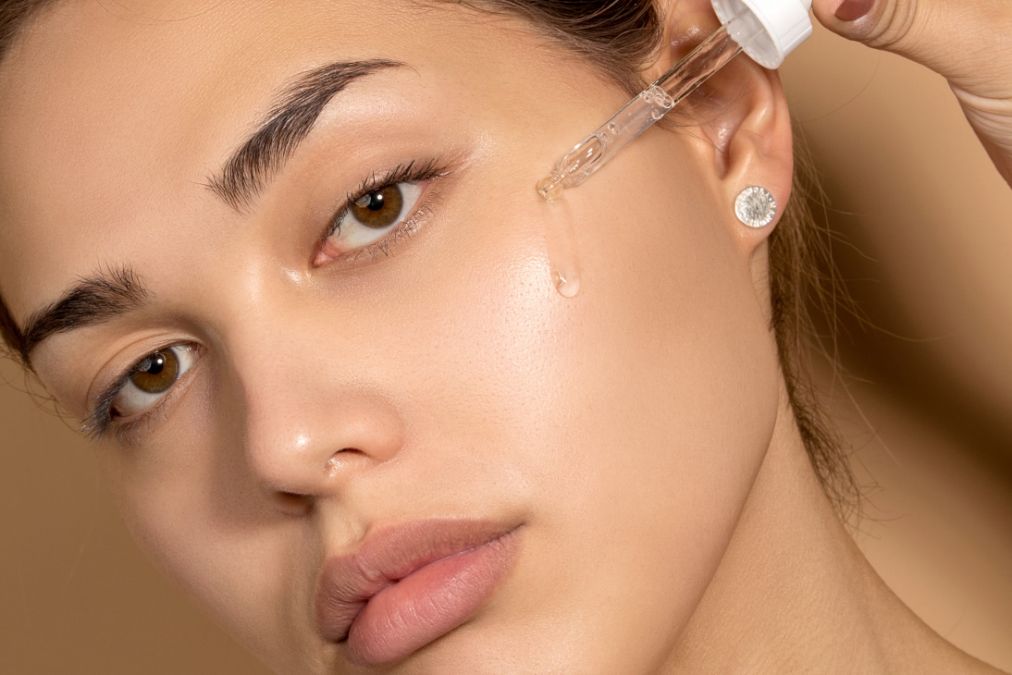Replenish Vs Hydrate: Which One Does Your Skin Need Most?
Written by: Lydia Bell
We all know that moisture is vital for maintaining healthy, glowing skin, but navigating all the different terms relating to moisture in skincare products can be confusing, especially when you’re trying to decide whether you should replenish or hydrate your skin. These terms are often used interchangeably, leading to uncertainty about which products are best suited for your skin's needs. To create an effective skincare routine, it's essential to grasp the distinction between replenishing and hydrating your skin, ensuring you give your skin the right care it requires for optimal health and radiance.

Replenish Vs Hydrate: What’s the Difference?
In the realm of skincare, "replenishment" refers to the process of restoring essential nutrients and lipids that the skin may lose over time due to factors like aging, environmental stress, and harsh skincare products. These nutrients and lipids are vital for maintaining the skin’s barrier function, which protects against irritants and locks in moisture.
On the other hand, "hydration" in skincare is about adding moisture to the skin, which is essential for maintaining its moisture balance and preventing dehydration. Hydration ensures that the skin stays supple, plump, and resilient, reducing the appearance of fine lines and keeping it looking youthful.
While both replenishment and hydration are crucial for maintaining healthy skin, they serve distinct functions—replenishment rebuilds and strengthens the skin’s structure, whereas hydration focuses on maintaining the skin's moisture levels. Together, they create a balanced and effective skincare routine that addresses both the foundational and superficial needs of your skin.

Replenishment Explained
Replenishment plays a crucial role in skincare, particularly for skin that is damaged or showing signs of aging. As our skin is exposed to environmental stressors and natural aging processes, it begins to lose essential components like lipids, ceramides, and vitamins, which are vital for maintaining its barrier function and overall health. Replenishing these lost nutrients helps to repair and strengthen the skin, restoring its resilience and ability to protect against external irritants.
Key replenishing ingredients include ceramides, which help restore the skin’s natural barrier; fatty acids, which nourish and protect the skin; and vitamins like Vitamin E and Vitamin B5, which support skin repair and regeneration.
Products designed to deliver these replenishing ingredients include nourishing oils, which deeply moisturize and repair the skin; serums, which deliver concentrated doses of essential nutrients; and barrier creams, which create a protective layer to lock in moisture and prevent further damage.
Incorporating these replenishing products into your skincare routine is essential for maintaining a strong, healthy, and youthful-looking complexion.

Hydration Explained
Hydration is a fundamental aspect of skincare, playing a crucial role in maintaining the skin’s moisture content and preventing dehydration. Proper hydration helps to keep the skin plump, smooth, and supple, ensuring it stays resilient against environmental stressors and premature aging.
Common hydrating ingredients include hyaluronic acid, a powerful humectant that attracts and retains moisture in the skin; glycerin, which draws water from the environment into the skin; and aloe vera, known for its soothing and moisture-rich properties.
These ingredients are typically found in water-based moisturizers, which provide lightweight hydration without clogging pores; hydrating serums, which deliver a concentrated burst of moisture to the deeper layers of the skin; and face mists, which offer on-the-go hydration throughout the day.
Incorporating these hydrating products into your skincare routine is essential for maintaining a healthy, radiant complexion and preventing dryness and flakiness.

Does Your Skin Need Replenishment or Hydration?
Determining whether your skin needs hydration or replenishment is key to tailoring an effective skincare routine. If your skin is lacking moisture, it may be dehydrated, often presenting with symptoms like dullness, tightness, and fine lines that are more noticeable. Dehydrated skin may also feel uncomfortable or even slightly itchy, signaling a need for hydrating products to restore its moisture balance.
On the other hand, if your skin is nutrient-depleted, it might show signs such as a rough texture, flakiness, or a compromised barrier, leading to increased sensitivity or redness. This indicates a need for replenishment, requiring products rich in essential nutrients like ceramides, fatty acids, and vitamins to restore and strengthen the skin’s protective barrier.
To accurately assess your skin’s needs, consider conducting a self-assessment by observing your skin's appearance and feel after cleansing. Alternatively, consulting a skincare professional can provide a more detailed analysis, helping you identify whether your skin requires more hydration, replenishment, or a combination of both to achieve optimal skin health.
Our Favorite Hydrating Products:
SkinCeuticals Hydrating B5 Masque
Avene Hydrance Hydrating Emulsion
Fresh Rose Instant Hydration Mist
Our Favorite Replenishing Products:











